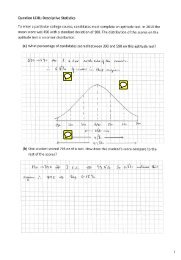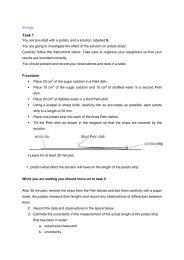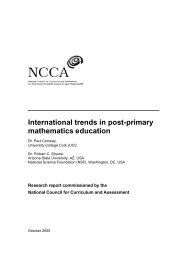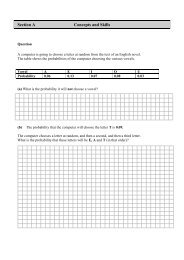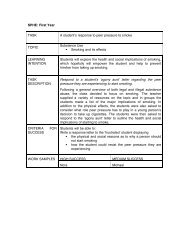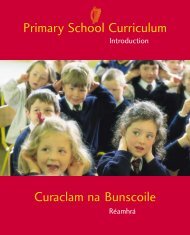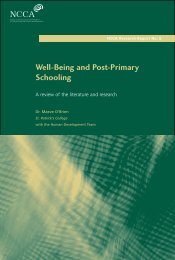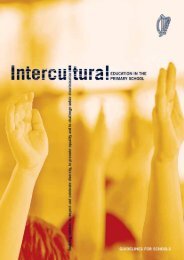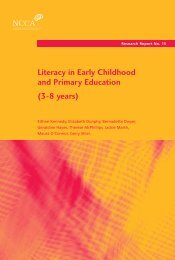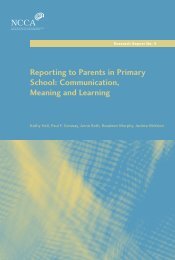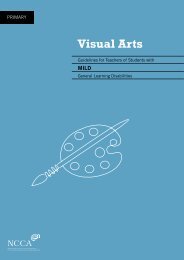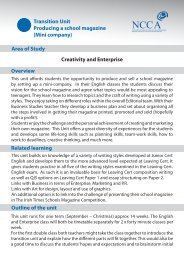Up and Away - National Council for Curriculum and Assessment
Up and Away - National Council for Curriculum and Assessment
Up and Away - National Council for Curriculum and Assessment
Create successful ePaper yourself
Turn your PDF publications into a flip-book with our unique Google optimized e-Paper software.
6<br />
What are the challenges facing the mainstream teacher?<br />
For the mainstream class teacher, the introduction of non-English-speaking pupils into the class is a<br />
challenge. Drawing the newcomer pupil into classroom activities can require time, planning <strong>and</strong> thought,<br />
all of which are difficult to allocate in a busy classroom. However, close cooperation with the language<br />
support teacher can result in the child being prepared <strong>for</strong> classroom activities so that he or she is able to<br />
work on the same things as peers, perhaps in a reduced or slower way.<br />
If the class teacher in<strong>for</strong>ms the language support teacher about <strong>for</strong>thcoming themes, units, etc. then it<br />
will be possible <strong>for</strong> the child to gain some access, even in part, to what is planned <strong>for</strong> the class. If the class<br />
teacher can also keep the language support teacher in<strong>for</strong>med about how the pupil is reacting in class,<br />
coping with classroom language, interaction, etc. then these matters can also be addressed in language<br />
support sessions.<br />
Pupils in the mainstream classroom with low levels of English language proficiency<br />
When a pupil’s level of proficiency in English is extremely low, <strong>for</strong> example in the early weeks after arrival,<br />
access to mainstream class learning may be virtually impossible. During this time it makes sense <strong>for</strong> the<br />
pupil to continue, in the mainstream classroom, work that has been started in language support sessions.<br />
This makes valuable use of class time, keeps the pupil focused, <strong>and</strong> supports English language<br />
development.<br />
This is particularly important <strong>for</strong> older pupils (Senior Primary, <strong>for</strong> example) who, if not able to engage<br />
with the mainstream class, may become disruptive <strong>and</strong> generally de-motivated. Liaison with the<br />
language support teacher allows <strong>for</strong> language learning activities to be provided <strong>for</strong> use in the<br />
mainstream classroom. This provides relevant work <strong>for</strong> the pupil, allows him or her to have a sense of<br />
purpose while in class, <strong>and</strong> supports progress in language learning.<br />
As English language proficiency develops, it is appropriate <strong>for</strong> the pupil to engage more with mainstream<br />
learning activities, even if this engagement is partial.<br />
How can a pupil be supported in engaging with the curriculum in<br />
general?<br />
The sole purpose of language support is to help a child to gain access to mainstream<br />
learning <strong>and</strong> to socialize within the community of the school.<br />
Language proficiency in other areas will develop naturally as the child interacts with peers.<br />
The language support programme, based on the English Language Proficiency Benchmarks <strong>for</strong> primary<br />
learners, reflects the thematic dem<strong>and</strong>s of the primary curriculum. The development <strong>and</strong> revision of the<br />
Benchmarks was in<strong>for</strong>med by primary teachers working with pupils whose mother tongue is not English.



